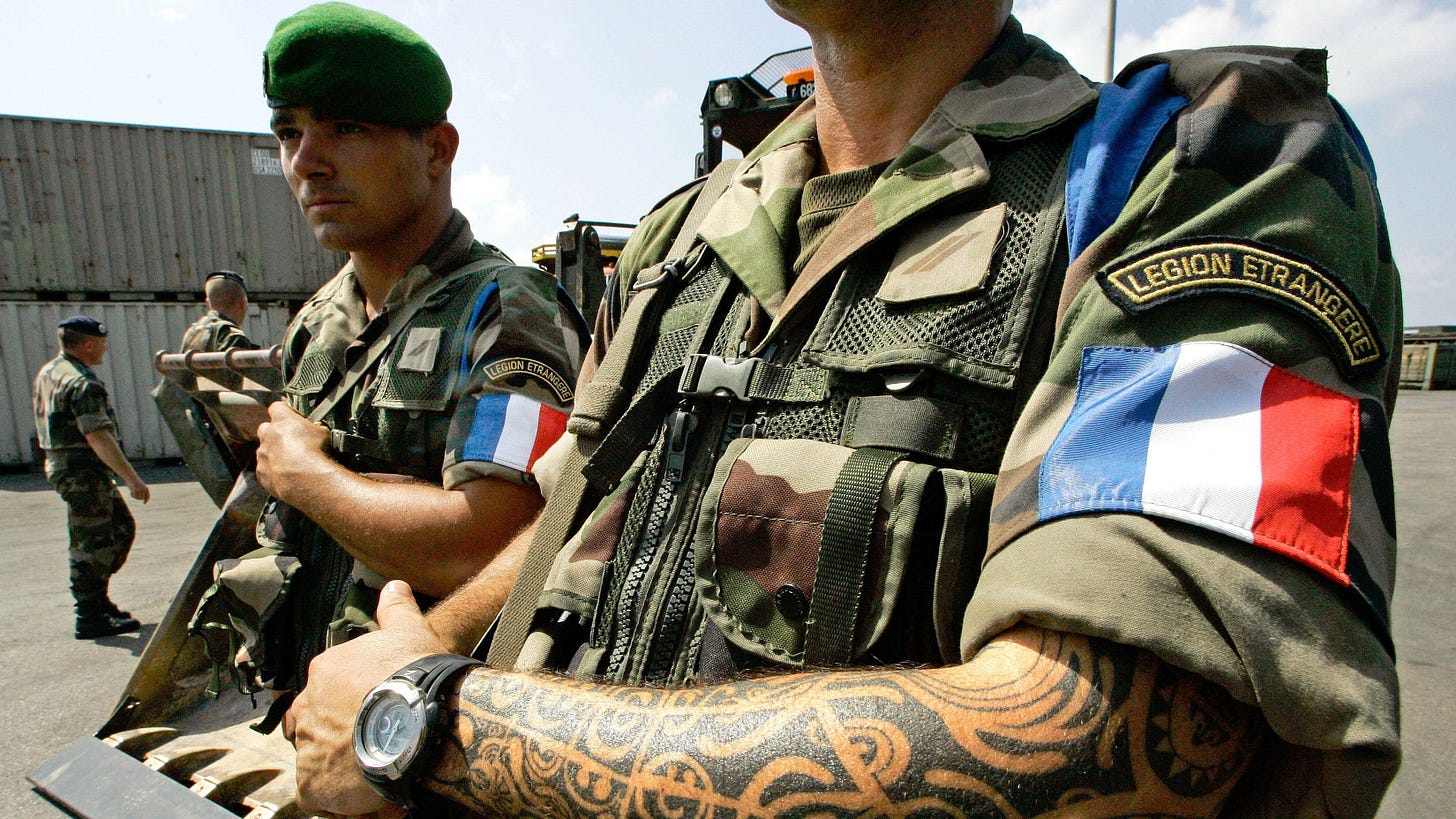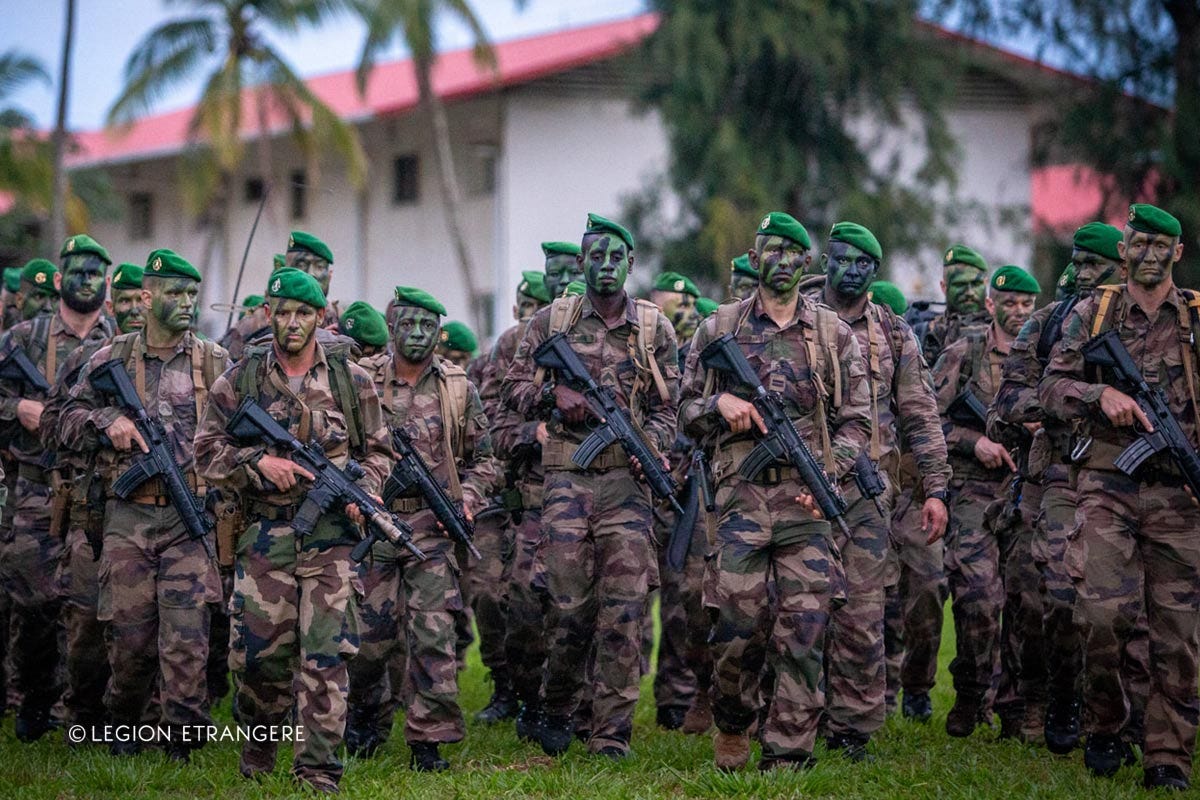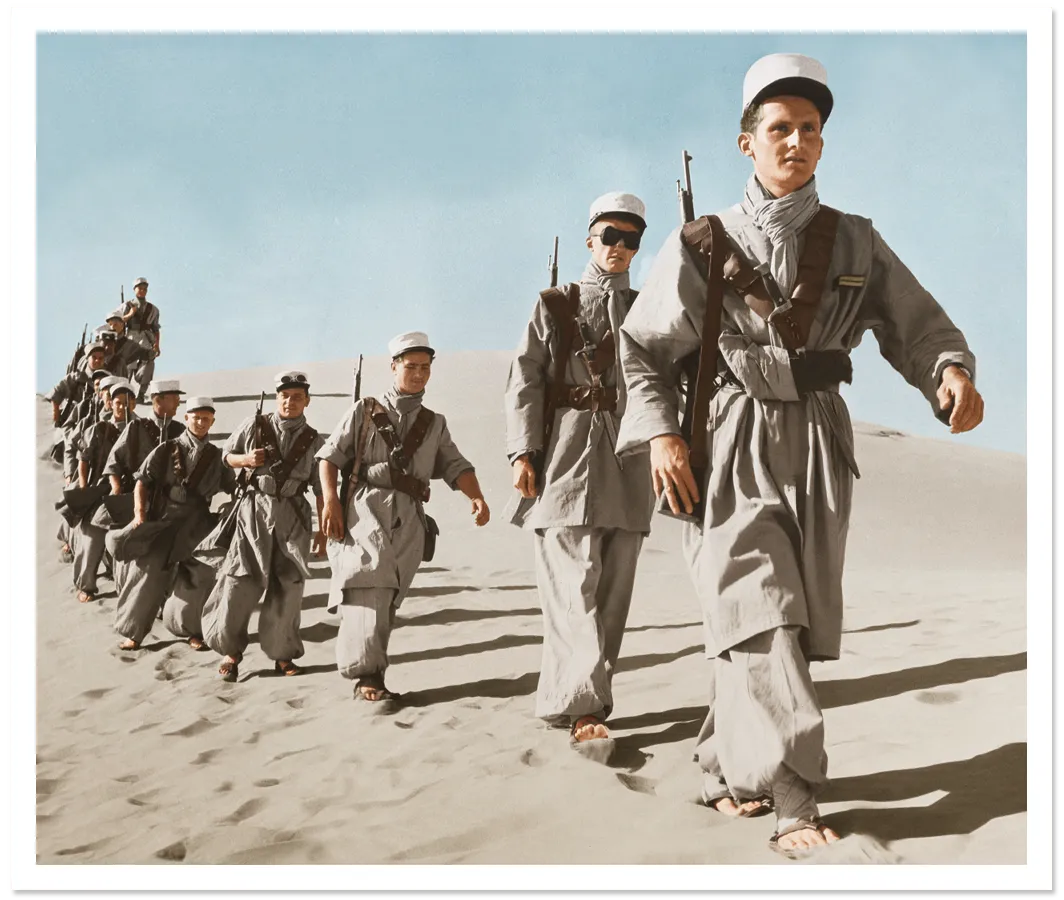France has sent its first troops officially to Ukraine. They have been deployed in support of the Ukrainian 54th Independent Mechanized Brigade in Slavyansk. The French soldiers are drawn from France’s 3rd Infantry Regiment, which is one of the main elements of France’s Foreign Legion (Légion étrangère).
In 2022 France had a number of Ukrainians and Russians in the Foreign Legion. They were allowed to leave the Legion and, in the case of the Ukrainians, return to Ukraine to join Ukrainian forces. It isn’t clear if the Russians returned home.
The Legion today is run by French officers but the rank and file are all foreigners. Volunteers that join the Legion have the option to adopt a new name under the rule of anonymat (being anonymous). That original requirement has been modified in recent years so a volunteer can decide whether to keep his given name or adopt a new one. Legionnaires serve for a term of 3 years after which they can ask for French citizenship. If a Legionnaire is wounded, he is entitled to gain French citizenship without any waiting period. There are no women in the Foreign Legion.
The initial group of French troops numbers around 100. This is just the first tranche of around 1,500 French Foreign Legionnaires scheduled to arrive in Ukraine.
These troops are being posted directly in a hot combat area and are intended to help the Ukrainians resist Russian advances in Donbas. The first 100 are artillery and surveillance specialists.
French President Emanuel Macron has been threatening to send French troops to Ukraine for months. He has found little or no support from NATO countries outside of support from Poland and the Baltic States. Allegedly the US opposes sending NATO soldiers to Ukraine (other than as advisors).
One of the questions to immediately arise from France’s decision to send soldiers from its 3rd Infantry Regiment is whether this crosses the Russian red line on NATO involvement in Ukraine? Will the Russians see this as initiating a wider war beyond Ukraine’s borders?
France itself does not have many troops to put on Ukraine’s battlelines, should the French government want to do so. According to reports, today France cannot support an overseas deployment of a full division and won’t have this capability until 2027 at the earliest.
The decision to send Foreign Legionnaires is, itself, a peculiar French compromise. France is not deploying its home army and, besides the few number of officers, all the other men sent are not French citizens.
France’s decision has two meanings, beyond the obvious one of potentially triggering a pan-European war.
First of all, it allows Macron to send troops to Ukraine and act like a tough guy without encountering much home opposition. That’s because no French army soldiers are being sent and there is no consequent conscription or other measures in the offing. This clearly reduces the potential fury of Macron’s political opponents.
The second reason is Macron’s anger at having French troops, almost all from the Legion, getting kicked out of Sahelian Africa and replaced by Russians. Control of Francophone Africa, and the riches it provides to French politicians, has been broken by the revolt and revolution in Africa and a decisive tilt to Russia, either directly or through PMC Wagner (the Wagner Group) now clearly under Putin’s direct control. This “humiliation” is felt in the Élysée Palace and particularly by Macron who, his opponents says, has lost France’s influence and harmed France’s overseas mining and business interests.
A particular blow is in Niger, an important supplier of uranium to France. France gets 70 percent of its electrical power from nuclear power generators. Global uranium supplies are tightening and prices rising. With Russia and Kazakhstan, along with Niger, on the top of the heap in terms of supplying uranium for nuclear reactors, France has a home economic security problem. The US decision to ban Russian uranium (but probably not realistically in the next few years), the Russians could deal a serious blow to France and the United States by cutting off supplies.
Given the risk of losing access to uranium, or at least enough of it to supply France’s reactors, Macron has to hope that his troop deployments to Ukraine won’t trigger a Russian embargo on sales to France.
It isn’t clear how the Legionnaires can help the Ukrainians. The Ukrainians know how to operate artillery, and they have sophisticated intelligence support, some of it generated by their own FPV drones and spies, and some of it thanks to US and other NATO intelligence and surveillance assets supporting Ukraine.
Anyway, the Ukrainian issue is not about how to use artillery but where the ammunition is supposed to come from. Ukraine continues to complain it lacks adequate supplies for 155mm howitzers.
The decision to put the Legion soldiers in Slavyansk is extremely provocative and goes against statements from the French side, including Macron, to the effect that if France sent troops they would replace Ukrainian army units in western Ukraine who could, therefore, be moved eastward to fight the Russians. As Slavyansk is on the front line, this French image of a soft deployment is turning into a war with Russia directly.
A key question is how NATO will react to the French decision to deploy. As France is acting on its own without NATO’s backing, the French cannot claim support from NATO under its famous Article 5, the collective security component of the NATO Treaty. Should the Russians attack French troops outside of Ukraine, this would be justified because France decided to be a combatant, and forcing an Article 5 vote would seem to be difficult if not impossible. Of course, NATO members individually could support the French, either by sending their own forces or by backstopping the French logistically and in communications. For example, there is no way a single Foreign Legion soldiers can go to Ukraine without passing through Poland. Will the Russians see this as evidence they are at war both with France and Poland?
Right now no one can answer any of these questions with any degree of certainty. It is unlikely the Russians will long tolerate a buildup of French army troops, even if they are Foreign Legion soldiers. What Russia will do in response is not certain.







Looking back, one must come to the conclusion that Ukraine was intended as a trap for Russia and Russia took the bait.
Let's summarize:
Russia was invested in Minsk2. Yes, they supported the seperatists in Donbass, but the support was intended to hold off the Ukrainian army. Later, Merkel and Holland confirmed that Minsk2 was only signed to Gi e Ukraine time to build up an army.
Before the war, Russia reached out to NATO and asked for security guarantees, which were ignored.
When the war started, Russia had too few soldiers to occupy Ukraine. Instead, Russia thought they could scare Zelebsky and thus change the government in their favor.
A potential peace deal with Ukraine was sabotaged by Boris Johnson, as we found out.
I remember reading the head of the German secret service was trapped in Kiev when Russia moved in and had to escape by car. I'm sure he wasn't there on vacation.
Let's be honest. Ukraine was set up as a trap for Russia. The West hoped and intended Russia to step in. The West calculated that the sanctions would ruin its economy and thus initiate a loss of the war and a regime change in Moscow. None of this had happened.
Now, the West doesn't know how to get out and here we are.
In the meantime, Zelensky and the West have no problems to sacrifice 600-800k Ukrainian soldiers but somehow the Russians are the bad guys.
If this war proves anything, it is how decadent and hypocritical the West is.
Thanks, Stephen, for a major news-report. But I still am awaiting validation of your report on April 25th that "Soldiers from Poland, France, the UK, Finland and other NATO members are arriving in larger numbers. These troops are not mercenaries. They wear the flag of their country on their shirts." It was headlined "NATO is starting to deploy Troops in Ukraine and Russia is Racing to Win" but even today's from you isn't any sort of verification of "Soldiers from Poland, France, the UK, Finland and other NATO members are arriving in larger numbers. These troops are not mercenaries. They wear the flag of their country on their shirts." If that news-report from you was false, will you please update it with an explanation of why you had posted it? I had relied upon its veracity in order to headline about it (using yours as the source) "NATO TROOPS START POURING INTO UKRAINE" and am now awaiting your explanation.